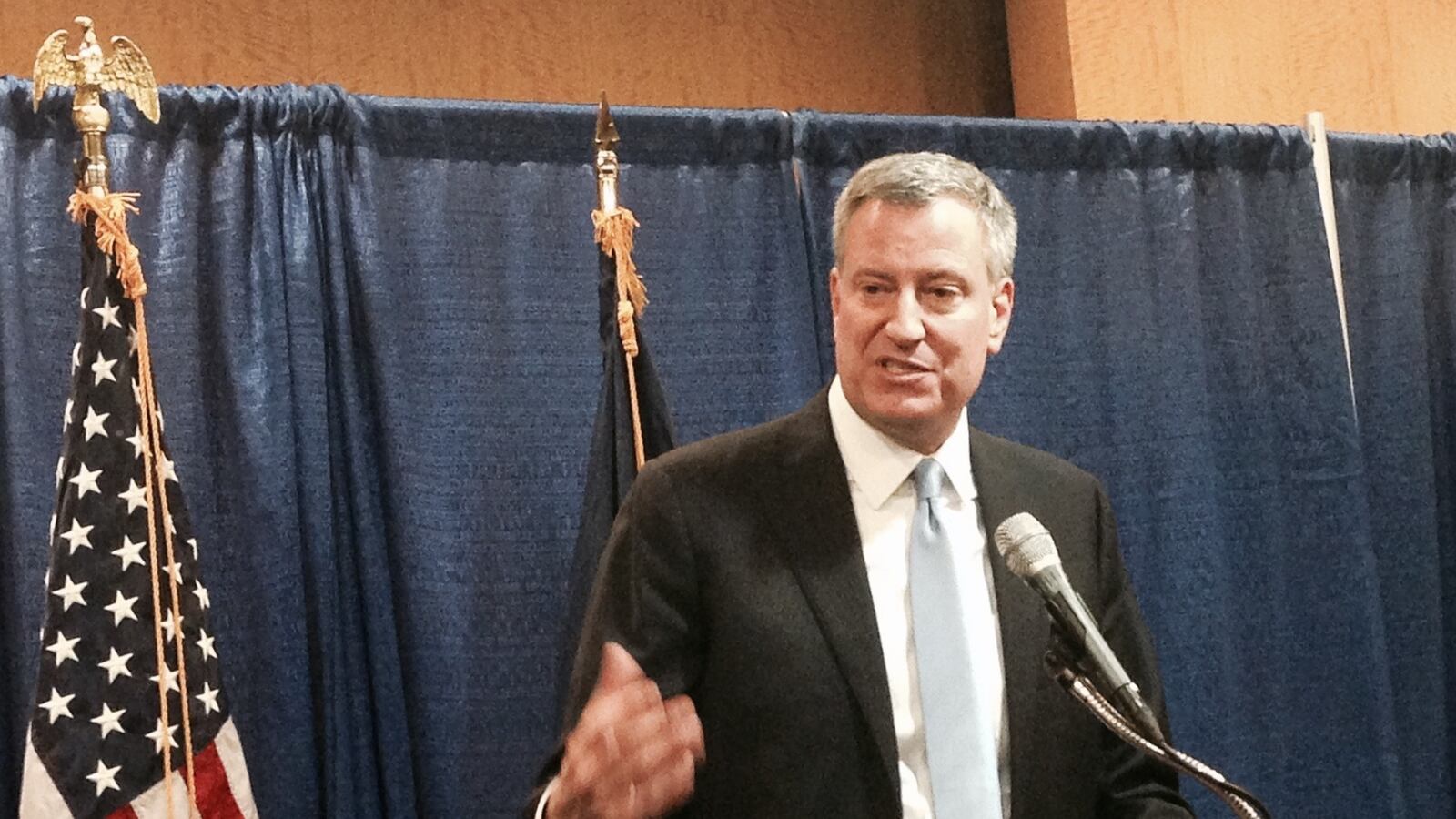ALBANY — Gov. Andrew Cuomo’s new proposal to help districts pay top-performing teachers more didn’t immediately find any takers among officials from New York City.
In his State of the State address today, Cuomo proposed a “Teacher Excellence Fund” that would allow districts to give $20,000 bonuses to teachers who earn the top rating on their annual evaluations. The bonus amount, which is more than a quarter of average teacher pay in the state, is enough to make teachers work harder, he said.
“You want teachers to perform … then incentivize performance with performance bonuses and pay them like the professionals they are,” Cuomo said.
Such a program could be expensive for the state. About half of teachers in districts outside New York City earned the “highly effective” ratings last year, the first in which the districts offered the designation. Cuomo did not specify how he would pay for the program.
But Cuomo signaled that not all districts would immediately participate in the program, which could curb costs. He also said districts would decide with their unions how to apportion the funds, leaving the possibility open that criteria other than evaluation scores could factor into decisions.
Local leaders signaled that they are unlikely to entertain the possibility of implementing a merit pay program in New York City.
Speaking at a press conference after Cuomo’s address, Mayor Bill de Blasio said he thought teachers should get bonuses if they take more challenging assignments, such as a job in a struggling school with many low-income students. But he said he was not interested in rewarding teachers for top ratings or for improving student achievement on tests.
“I believe it’s appropriate, for strategic reasons, to give bonuses, for example when we have teachers work in some schools that are really struggling,” de Blasio said, reprising comments he made on the campaign trail.
And UFT President Michael Mulgrew reiterated the union’s longstanding stance that a “career ladder” that pays experienced teachers more to help newer colleagues would be preferable to a program that rewards teachers based on their annual ratings. The UFT has criticized the city’s implementation of its new teacher evaluation system, which went into effect this school year.
“First you have to be a highly effective teacher,” Mulgrew said about teachers who would climb the proposed ladder. “But you also have to be able to communicate and work well with other teachers because part of your job would be to help them develop.”
Despite the weak prospects for local implementation, advocates of overhauling how teachers are paid immediately embraced the proposal.
“With his bold announcement of the Teacher Excellence Fund and $20,000 bonuses for highly effective teachers, Governor Cuomo has positioned New York as a leader in the national education reform movement,” said StudentsFirstNY Executive Director Jenny Sedlis.
Merit pay has not been shown to boost student performance. A recent $75 million teacher merit pay initiative in New York City ended after it did not lead to gains for students.
But while little evidence exists that financial incentives make teachers better, a more recent experiment, the Teacher Talent Initiative, suggested that incentives could lead top teachers to head to struggling schools. The program paid $20,000 to teachers who were most effective at improving student achievement to take jobs in struggling schools for at least two years, and over 90 percent stayed there even after the extra pay stopped, according to a recent study. The study showed that students’ test score gains ranged from modest, in reading, to significant, in math.
Cuomo’s policy book, released to accompany his speech, suggests that he’ll follow the Talent Teacher Initiative playbook. It stresses that one way districts can design incentives is by creating higher-paying jobs in struggling schools — exactly the possibility that de Blasio said he would consider.

